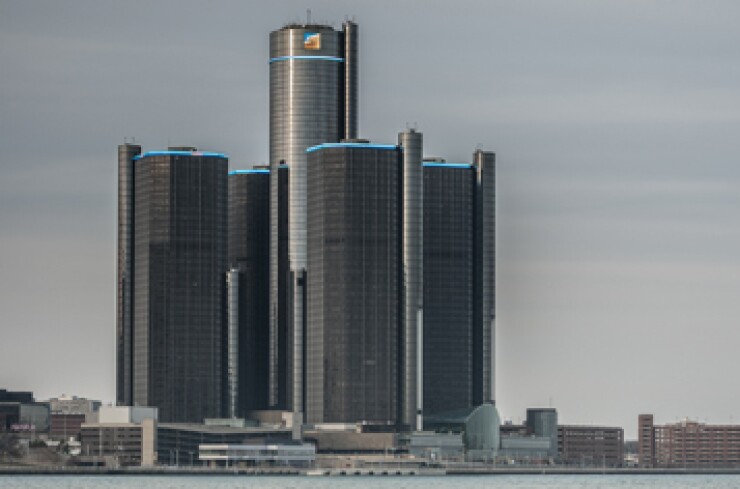
CHICAGO - Detroit is set to hit the market Aug. 19 with its first public bond sale since exiting the largest municipal bankruptcy in U.S. history.
The bond sale is tentatively expected to total $245 million, according city spokesman John Roach.
Proceeds will be used to repay Barclays for the $275 million loan that allowed the city to exit bankruptcy in December.
Detroit Finance Director John Naglick told local radio station WDET that the city was able to reduce the deal by $30 million due to fee reductions from attorneys and consultants in the bankruptcy case.
Naglick also said he expected to receive fresh bond ratings this week.
Mayor Mike Duggan and other officials will spend the first two weeks of August promoting the deal to investors. The city has set two investor presentations, one on Aug. 11 in Detroit and one on Aug. 13 in New York City.
Officials hoped to snag investment-grade ratings for the deal because it carries a pledge of income tax revenue, a first for any Michigan issuer.
The city currently carries junk-bond ratings from all three rating agencies.
Gov. Rick Snyder in April signed into law legislation giving bondholders a statutory lien on the city's income-tax revenue as way to ease the city's first post-Chapter 9 return to the capital markets. The law also gives the bonds an intercept feature, sending income tax revenue first to a bond trustee who will extract enough to cover debt service and send the rest to the city.
The Barclays agreement requires the city to seek at least two credit ratings. Fiscal analysts reviewing the legislation estimated that investment-grade ratings could save the city up to $30 million in interest costs over the life of the bonds.
Speaking at a Municipal Securities Rulemaking Board seminar on July 28, Kevyn Orr, Detroit's former emergency manager who shuttled the city through bankruptcy, joked, "I hope you buy early and I hope you buy often," referring to the city's upcoming bond sale, according to Twitter reports from the meeting.
Under the original agreement, Barclays was to hold the taxable debt for up to 150 days in a variable-rate mode and the city was to refund the bonds publicly in a fixed-rate mode. The loan was extended by 90 days in May.
Of the $275 million, $38 million of the taxable proceeds paid off the banks that acted as counterparties on the city's interest-rate swaps. Another chunk of proceeds financed new information technology as well as other capital and operating upgrades.
The city floated $1.2 billion of bonds in December to pay off creditors, but none of the debt were floated on the public markets. It was directly placed with creditors and participants, though they are securities that can be traded on the markets.





